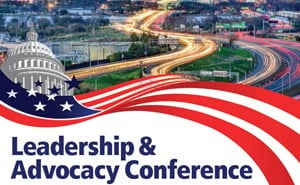Gillian Schmitz, MD, FACEP
ACEP president
As states across the country are pushing legislation to grant nurse practitioners and physician assistants independent practice in the emergency department, it’s more important than ever that we as emergency physicians educate the public, our patients, on our value and the depth of our training.
We know that nearly three-fourths of adults would be concerned if a physician was unable to oversee their diagnosing and treatment in a medical emergency, according to a recent ACEP/Morning Consult poll. Bills looking to expand nurse practitioners’ and physician assistants’ scope of practice not only go against patients’ wishes by cutting their access to emergency physicians, but they can also potentially put patients at risk. We’ve seen evidence that granting too much independence to non-physicians can lead to overprescribing and over-utilization of diagnostic imaging or other services.
While nurse practitioners and physician assistants are integral and valued members of the emergency department care team, ACEP does not believe they have adequate training to perform independent, unsupervised care in the emergency department.
ACEP launched a targeted campaign, called Who Takes Care of You in an Emergency?, to educate people about emergency physicians’ role and the vast difference in our experience, education and training compared to other members of the emergency department’s care team. Through this campaign, ACEP will be sharing targeted paid ads, short informational videos and resources that chapters and members can use to make policy makers and the public aware of these issues. By working together, we can stop these ill-conceived policies and ensure that patients have access to the most highly trained and qualified health care professionals in the emergency department.
Want to add your voice to ACEP’s campaign against scope creep? Here’s how you can help:
Be Prepared with Talking Points
Whether it’s with a patient, neighbor or lawmaker, you may only get a moment to explain your work in the emergency department. And that’s why it’s important to know ACEP’s key points on scope of practice. Visit ACEP’s Media Hub to access the latest Chapter and Spokesperson toolkit resources, which include key points, a sample op-ed and social media posts.
Share Information on Social Media
Social media is one of the primary ways people consume news, and you can use social media to re-share information and videos from ACEP on scope of practice and the impact that improper expansions can have on patients. You also can use ACEP’s and your own experiences in the emergency department to advocate for patients’ access to emergency physicians. Additionally, you can always direct people to the educational content and resources on EmergencyPhysicians.org, ACEP’s public-facing site.
Provide Expert Points to News Media
ACEP is constantly working with news media to share emergency physicians’ expertise on timely issues, like scope of practice, and we’re always looking for experts to promote these important messages. ACEP’s Spokespersons Network provides training and connections to help ACEP members speak on behalf of the college. Learn more and join ACEP’s spokespersons network here.
Use AMA Scope of Practice Partnership Resources and ACEP Policies
ACEP is a member of the American Medical Association’s Scope of Practice Partnership, which has brought together physicians across specialties to push back against expanding scope of practice and advocate for emergency physician-led care. The partnership includes 105 national, state and specialty medical associations, and since 2019, AMA in collaboration with state medical and national specialty societies has secured more than 100 state legislative wins to stop scope expansions of non-physicians. When working with policymakers, ACEP’s policies have standards that can help with advocacy at the state and local level, and you can also use AMA’s scope of practice resources.




